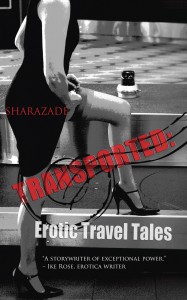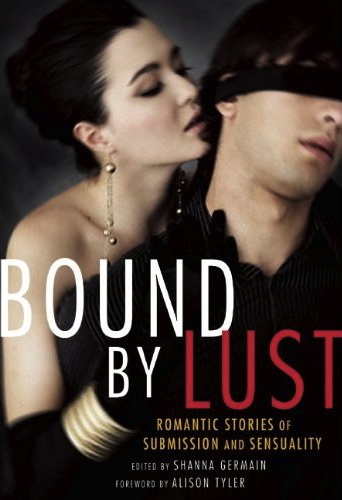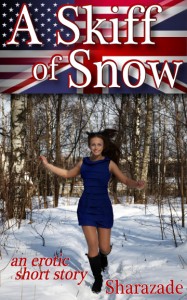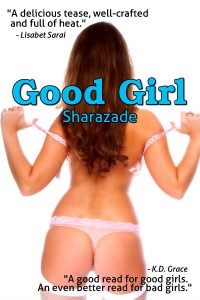When I was working on the manuscript that became Transported, I gave one of the stories to a male friend to read. He isn’t someone who normally reads erotica, or even much fiction, so I was interested in his reaction: could I interest someone who didn’t naturally gravitate to that genre?
When he was done, he handed the pages back to me and said, “You write about sex like a woman.” I was more surprised by my reaction to his remark than the remark itself—I mean, the remark itself is not startling, is it? I am a woman. I have sex as a woman. It’s quite reasonable that I would write about sex “like a woman.” But without knowing quite why, I felt just little bit insulted. What did he mean, “like a woman”? I tried to get him to explain it, but perhaps he sensed some of my defensiveness, because he backed off, as if I were asking him “Does this story make me look fat?”
Is it an insult of sorts? I don’t think he meant it that way at all, but think of similar statements: You throw like a girl isn’t a compliment, and neither is Women drivers! Not that men have it any easier; if a woman says, Typical man! it’s probably not because he did anything good. With erotic writing, though, gender is important. Most characters are one or the other, and the reader needs to be able to believe this. (As an aside, I can’t help but think of one of the best bumper stickers I ever saw, which said, as a nod to Bob Dylan, I brake just like a little girl.)
Three of the stories in Transported have first-person male narrators. As dedicated as I am, I did not get a temporary sex change to write them. How could I do it, then? At the time I was writing, I asked myself the same thing; and my answer was that I didn’t need to sound “like a man,” but rather like a reader would expect a man to sound. A subtle difference, but a difference nonetheless.
Do men and women speak (and write) differently, as genders? There’s no easy answer. For every study claiming yes, there is another proving that it isn’t really so. It’s beyond the scope of this blog to go into all of the intricacies, but as someone who has studied the issue academically, I’ll give you my conclusion: Yes, there are differences, but they’re more related to power. That is, a higher-status person will talk more, will talk more directly, will interrupt more, and so on. It is a sad reality that at least in the US, men still have more power in many situations than women, and that influences how they talk. But power is also determined by age, experience, job position, family background, level of education, demonstration of expertise, and other such factors.
If you think of the thousands and thousands of novels and stories you have read that were written by men, you wouldn’t say that they all sounded the same. Not all men sound the same; not all women sound the same. However, it’s also true that I can almost always tell on online bulletin boards and lists whether a writer is male or female before a name or gender is offered. It isn’t words alone, of course, but also point of view and choice of topic—but something in the way many people write indicates their gender.
Any author has the same task of making characters sound believable, whether those characters are men or women or transgender or werewolves or space aliens. If a woman could only write “like a woman,” it would be hard to write convincing dialogues between a woman and a man. Nor does a woman (at least this one) want to write like the same woman in every story. That, to me, is really the challenge of writing short stories—to write very different characters believably, who act, and talk, in different ways. I often have a certain person’s “voice” in mind when I create characters; this helps me keep them consistent throughout the story.
I’ll close with a link to a site, The Gender Genie, that purports to be able to guess the gender of a writer by analyzing a chunk of text.
You input a chunk (the Genie points out that it works best with chunks of 500 words or more), indicate whether the genre is fiction, non-fiction, or blog (is that a dig at the truthfulness of blogs?), and the Genie will guess. Most people I know who’ve been to the site amuse themselves for a bit putting in different chunks of their own writing, perhaps hoping to discover something about their own identity they didn’t already know. What’s interesting is that the Genie also tells you which words it has tagged as “feminine” and “masculine,” and some of the choices will surprise you, I think.
I don’t think for one minute that the Gender Genie has all the answers. I’m not convinced, actually, that it has any of the answers. But it raises interesting questions for writers about how our word choices affect the impressions we give.
This blog entry, by the way, makes the Genie think I’m male: I rated a Male score of 1604 to a Female score of 1038. So I write about sex like a woman, and blog like a man. But I’m OK with that.
Oh, and I brake like a lady





